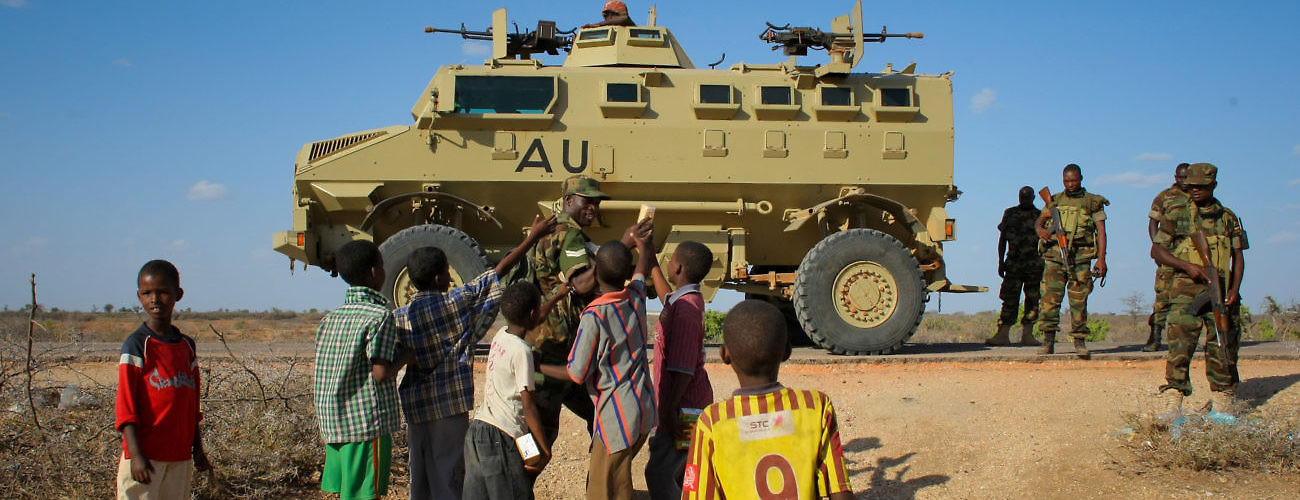AMISOM and the Somali National Army recapture Buur-Hakba from al-Shabaab, February 23, 2013. UN Photo/Stuart Price.
In recent years, a growing number of UN peacekeepers have been mandated to carry out “stabilization” tasks. Yet the UN still has no explicit definition of or framework for this concept, and most recent stabilization operations, such as those in Afghanistan and Iraq, occurred under quite different circumstances from UN peacekeeping operations. The AU Mission in Somalia (AMISOM), which has long operated with the consent of a weak host government, in parallel with external and local forces, under a complex mandate, and with African personnel, may offer a more useful point of comparison.
The latest report by IPI investigates what lessons UN peacekeepers can draw from the AU’s experience in Somalia. AMISOM suffered from a number of political and operational challenges in its attempt to implement an effective stabilization strategy. It suffered from, inter alia, overly securitized responses, fragmented command and control, inadequate logistical support and force enablers, and a failure to significantly degrade al-Shabaab’s fighting ability or provide security to the local population.
On the basis of these challenges, the report offers nine lessons for UN peacekeepers with a mandate to stabilize:
- Missions must be appropriately configured to fulfill their mandate.
- The political and military elements of a stabilization strategy must be in sync.
- Extending state authority is not synonymous with peacebuilding, at least in the short term.
- Territorial expansion is less important than degrading the capabilities of spoilers.
- Strategic coordination among relevant partners is a crucial, mainly political task.
- Lack of coordination can have negative political and military effects.
- Effective stabilization requires positive relationships between peacekeepers and the local population.
- There can be no successful exit without building capable, legitimate, and inclusive national security forces.
- UN organizational frameworks and bureaucratic culture are not suited to supporting war-fighting operations.








